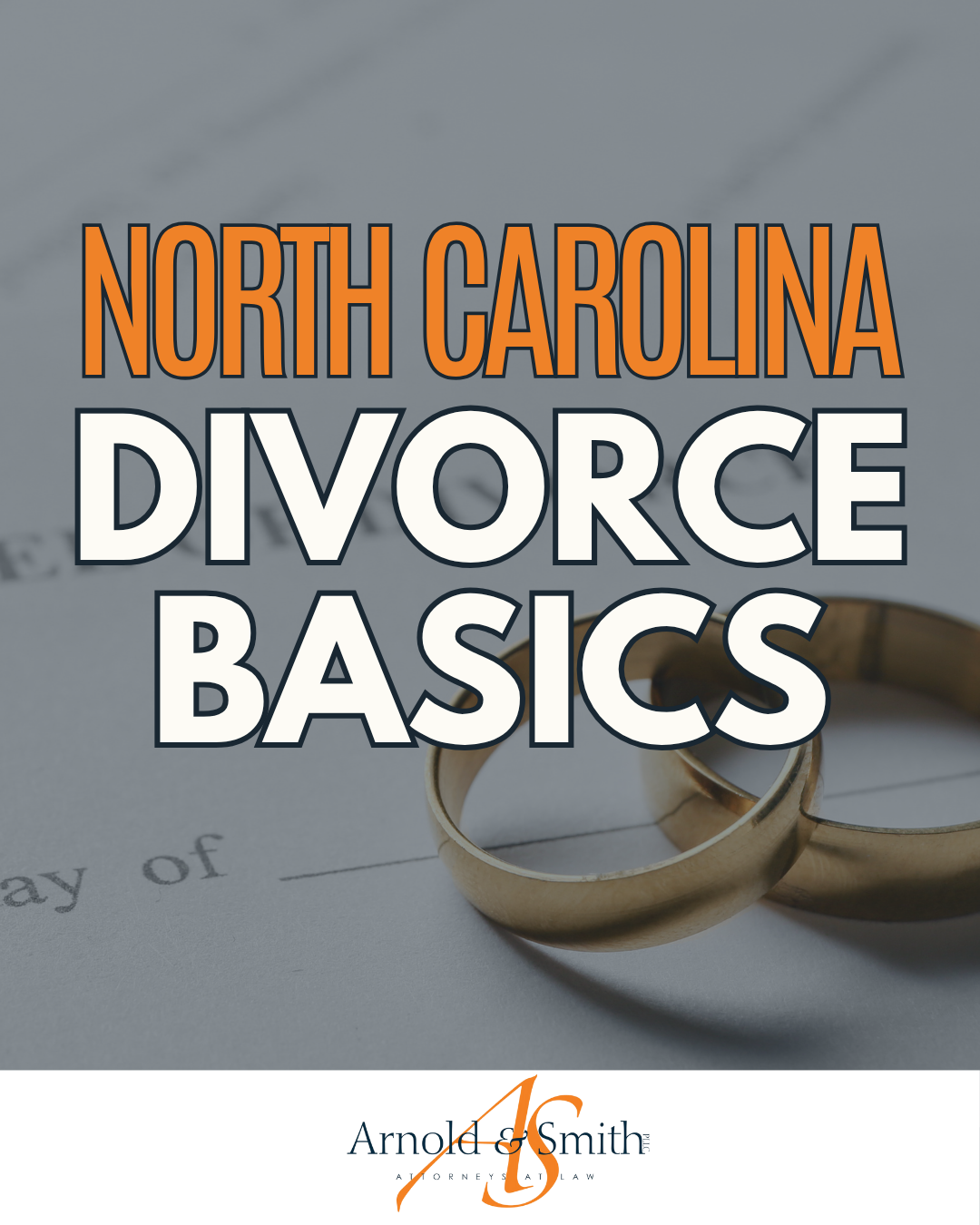The decision to divorce is one that couples do not take lightly. You may have been through quite a bit of drama and turmoil before finally concluding that you need to end your marriage. While divorcing is not particularly complicated, it can be quite stressful. You will want to follow the law while also ensuring that you get a fair settlement. Divorce in North Carolina is also called absolute divorce. Once the judge grants an absolute divorce, you are able to marry again if you choose.
Divorce Requirements
North Carolina has a few requirements that you must meet in order to seek a divorce. One party must be living in North Carolina for at least six months prior to filing for divorce. The most significant requirement is that couples must live apart for a period of at least one full year before they may file for divorce. The couple must reside in different residences and are separated with the intent to end their marriage. If the couple gets back together, even briefly, the one-year separation requirement must begin again if they ultimately decide to divorce.
No-Fault Divorce
North Carolina does not require grounds for divorce. Instead, couples may seek a no-fault divorce. No-fault divorce means that couples have irreconcilable differences that they are unable to resolve. Couples need only prove that the marriage is irretrievably broken. A no-fault divorce does not require you to prove any type of wrongdoing. If a party did something wrong during the marriage, it may be taken into consideration for the determination of alimony in some cases.
Distribution of Assets
The distribution of marital assets is an integral part of the divorce process. North Carolina law requires the equitable distribution of assets between parties in a divorce. This means that marital property, property you acquired after you got married, belongs equally to both people. Separate property includes assets that you owned prior to marriage, inheritances, and gifts. Couples should try to resolve their asset distribution, which can be done with help from their attorneys.

Child Custody and Visitation
In North Carolina, both parents are generally considered to have equal legal custody. Legal custody means that the parent may make decisions on behalf of the child, such as for education, medical needs, religion, and more. Physical custody refers to where the child resides. Many times, one parent will have primary physical custody while the other parent has regular visitation. The non-custodial parent typically pays child support. The courts consider various factors in the calculation of child support.
How To File For Divorce in North Carolina
Either party may file for divorce in North Carolina as long as they meet the criteria. The party who files for divorce is called the petitioner or plaintiff, and the other person is the respondent or defendant. The person filing the petition must serve the other party with the petition for dissolution of marriage. Once served with divorce papers, the party has 30 days to respond. A hearing date will be set. Parties will need to work to come to an agreement regarding divorce settlement issues. If they cannot agree, the court may require them to participate in mediation. At the final hearing, the judge will approve the divorce and enter an order, and the divorce is complete.
It is helpful to have a knowledgeable and compassionate attorney to guide you through the process and help make the situation as stress-free as possible. Call us today at Arnold & Smith, PLLC, at (704) 370-2828 to talk to our experienced legal team.
The family law practice group at Arnold & Smith, PLLC includes two Board-Certified Family Law specialists and one Child Welfare Law specialist, as well as several attorneys with many years of family law experience that are committed to providing a powerful voice to individuals facing the often-tumultuous issues in this area of law. The range of issues our family law clients may be facing include pre- and post-nuptial agreements; separation agreements; post-separation support; child support (both temporary and permanent); absolute divorce; divorce from bed and board; military divorce; equitable distribution of assets; child custody (both temporary and permanent); retirement benefits and divorce; alimony and spousal support; adoption; and emancipation. Because this area of the law is usually emotionally charged and complicated, the family law attorneys at Arnold & Smith, PLLC act with the utmost dedication to ensure that each client understands his or her options, and then act to achieve the best result possible for that client’s particular situation.
Source:
https://www.nccourts.gov/help-topics/divorce-and-marriage/separation-and-divorce
https://www.law.cornell.edu/wex/no-fault_divorce
Image Credit:
https://www.freeimages.com/photo/toy-house-car-and-cash-with-engagement-ring-1891617
See Our Related Video from our YouTube channel:
https://www.youtube.com/user/ArnoldSmithPLLC?feature=watch
See Our Related Blog Posts:
 Charlotte Divorce Lawyer Blog
Charlotte Divorce Lawyer Blog



